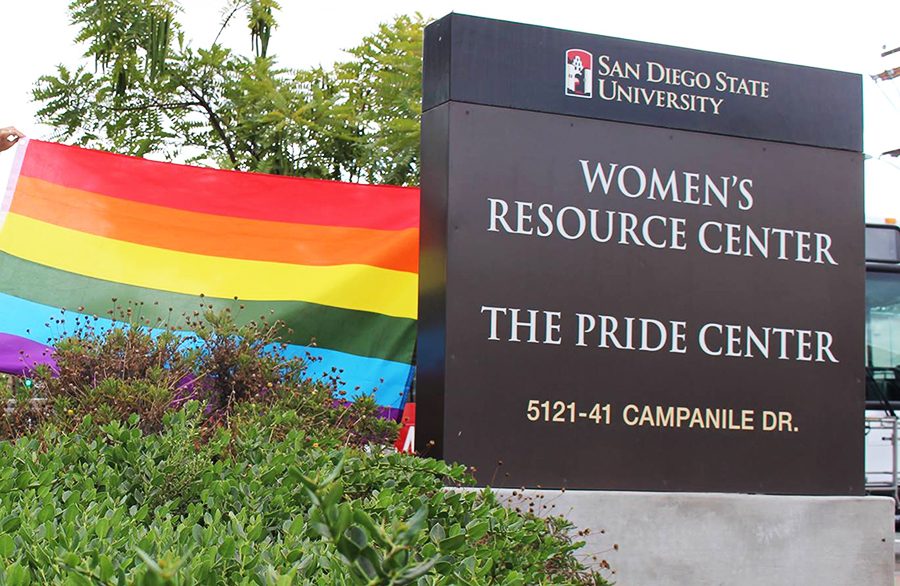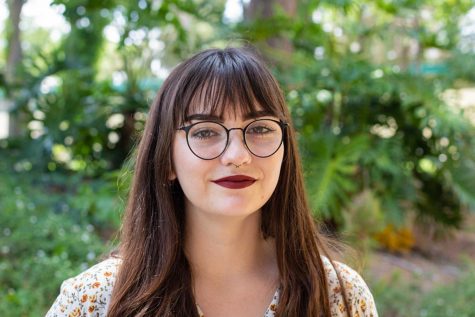The path to higher education, one deemed daunting by some students, presents a unique set of considerations for transgender and gender non-conforming individuals.
Panelists at “Empowering Our Community,” a panel presented by The Pride Center last week in conjunction with Trans Week of Empowerment, said they struggle to find balance in an era where people either do not understand their identities or seek to tokenize them.
“Make yourself diverse enough to make them want you, but not enough to become a problem,” Sav Schlauderaff, women’s studies masters student and graduate assistant at The Pride Center, said at the Thursday event .
Schlauderaff refers to writing about oneself in a graduate program application, where they said it is all too easy for schools to avoid applicants that don’t stand out.
The other panelists communicated a similar message: be sure to communicate individuality, but pick your battles.
Rhetoric and writing studies graduate student and teacher assistant Cass Lynch, who identifies as two-spirit — a concept in some Native American cultures that, roughly, means someone who identifies outside of binary gender roles — said it’s all about “playing the game.” For Lynch, this means the discomfort that may accompany discussing a person’s identity will pay off if it emphasizes their individuality.
“It feels icky because you’re not representing yourself,” Lynch said. “You’re representing your academic character.”
The panelists brought forward a variety of tips for prospective graduate students, with a specific focus on transgender and gender non-conforming applicants. For Pride Center Graduate Assistant Wesley Paláu, their biggest tip is to do research on the professor in an applicant’s desired program and their literature they contribute.
“It’s not about what they write,” Paláu said, “it’s about the feeling they give you.”
On top of this, all the panelists agreed the most important thing to remember is time, and that it’s more available than a lot of people like to think.
Women’s studies lecturer Krizia Puiq said it is important that students don’t rush to get their master’s degrees if they don’t know what they want.
“When you understand your life can take more time, you get where you want to get,” Puiq said.
Paláu said they had a particularly difficult time letting go of “lost” time. Having grown up in Tijuana, Mexico, Paláu had only been in the U.S. education system for a year prior to beginning their undergraduate program. This, along with a number of other factors, eventually lead to them spend nine years completing their undergraduate program.
“Time was something I hadn’t allowed myself to forgive myself for,” Paláu said.
Lynch had a similarly difficult undergraduate experience. Lynch said their high school experience was so overshadowed by academics that mental health was often pushed to the side. Even though Lynch was able to get into Stanford, unresolved mental health issues led them back to community college for the next semester, they said.
Lynch said this led to a lot of self-hatred, often the kinds of thoughts they still find themself battling today. However, they said they’ve learned to take these adverse experiences to be more knowledgeable in the future.
“It’s very important to live and do things for yourself,” Lynch said. “You can’t hate yourself because so much of the outside world is trying to do that.”









